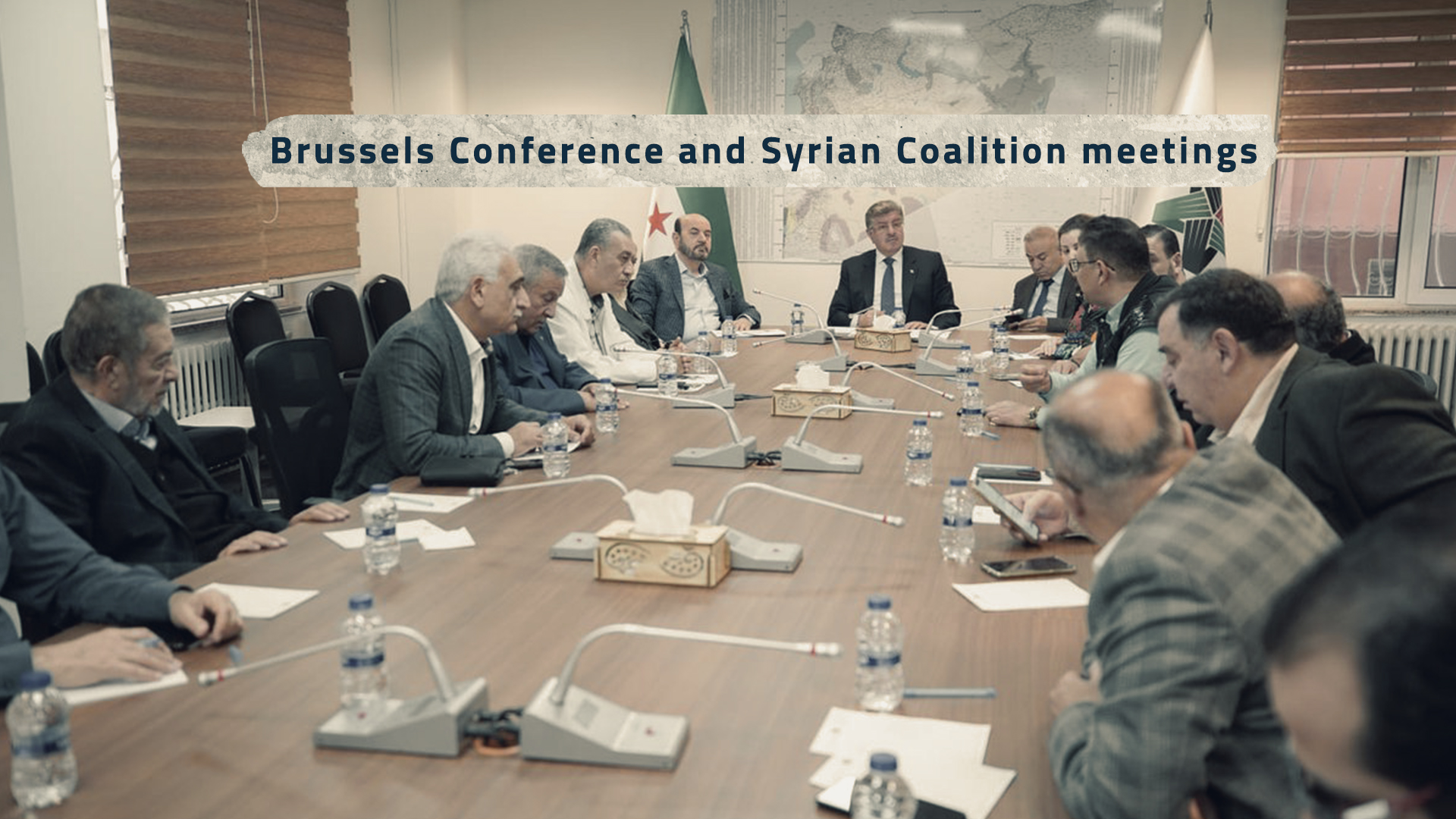Brussels Conference and Syrian Coalition meetings
Brussels Conference and Syrian Coalition meetings

The sixth Brussels Conference on “Supporting the future of Syria and the region” was held in the Belgium capital, Brussels, and attended by representatives of 55 countries with the exclusion of Russia because of its invasion of Ukraine. The participants pledged $6.7 billion to help Syria and the neighboring countries which are hosting Syrian refugees, calling for the necessity to reach a political solution for the Syrian crisis.
The conference focused on two main points, the first was providing humanitarian support for the Syrians inside and outside, especially in the camps, because more than 13 million people are in need of aid and support according to UN estimates. The second point was the support of development projects through opening door for a wide participation of civil society organizations in the area.
Russia’s absence from the conference, perhaps, was an indication of excluding it from the Syrian crisis. This may have negative repercussions regarding delivering humanitarian aid to northwest Syria through Turkey which is planned by a UN resolution that was extended based on an American-Russian agreement. However, this UN mandate may not be extended in July because of the worsening Russian-Western relations regarding the war in Ukraine, not in Syria. Therefore, any difference between Washington and Moscow will lead the international aid to be halted, or its continuation away from UN Security Council.
According to experts, the need of the Syrians this year exceeds tens of billions of dollars, while the conference only pledged $6.7 billion. This is because of international circumstances, impacts of Covid-19 and Ukrainian war. However, the problem does not lie in the amount of money granted or the harshness of the situations of the refugees and the IDPs, but in the mechanism of distribution. Since 2011, Syrian opposition has got more than $45 billion, but this amount was looted by the donor states and NGOs affiliated with both the Syrian regime and opposition. The suffering of the IDPs and refugees is a clear example of this.
During Brussels Conference, EU High Representative for Foreign Policy, Josep Borrell, reiterated, the international community must not forget Syria, saying, “You know that the needs remain enormous. Even if Syria is not anymore on the front pages, on the headlines of the media around the world, even if we talk less about Syria, we are very much aware that 90% of Syrians living in Syria live in poverty.”
On the other side, the opposition Syrian National Council (SNC), which is affiliated with the occupying Turkish state, seeks to build relations with the Syrian regime through Astana Peace Talks and Constitutional Committee meetings.
The participation of the SNC in the Brussels Conference comes with aim to obtain financial aid and to polish its picture following recent resignations and withdrawals of its members. The decision to change its members could not have been done without orders from the Turkish regime.
Following the changes took place within the ranks of the SNC, the so-called Kurds Independent Association, which was founded two years ago by the Turkish intelligence, won three members, i.e. more than the number of the members of the tribes and clans in Syria? The Kurdish National Council in Syria (ENKS) got 11 members, but before it only had five. This is a big number compared to northern Syria, according to experts. The Turkmen obtained nine members which is also a big number. This reveals the effect of the Turkish regime on the matter.
It seems that the Turkish regime tries to affect Syria’s north in case of any change or confrontation with the Autonomous Administration of North and East Syria (AANES), because all indications assure that there is a coordination between the Syrian and Turkish regimes to weaken the AANES and perhaps replacing it with the new structure of the SNC in case of holding any negotiations between Damascus and Ankara.




